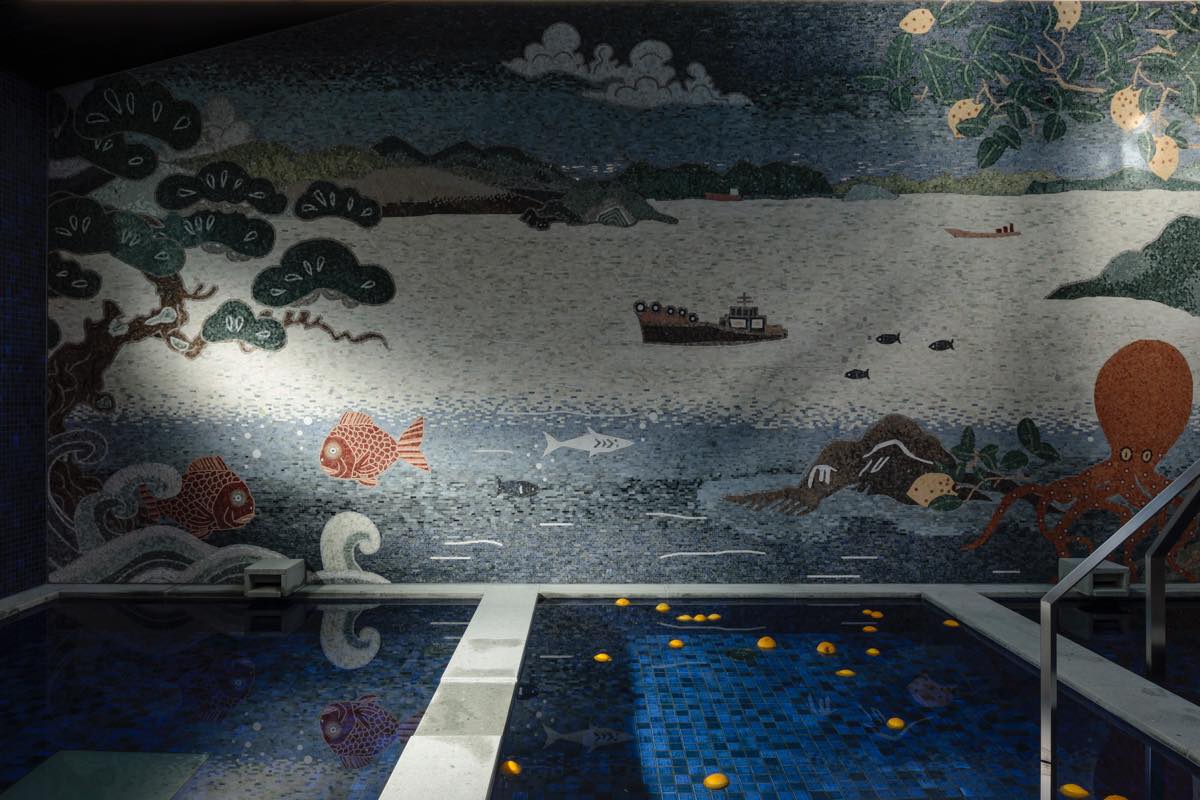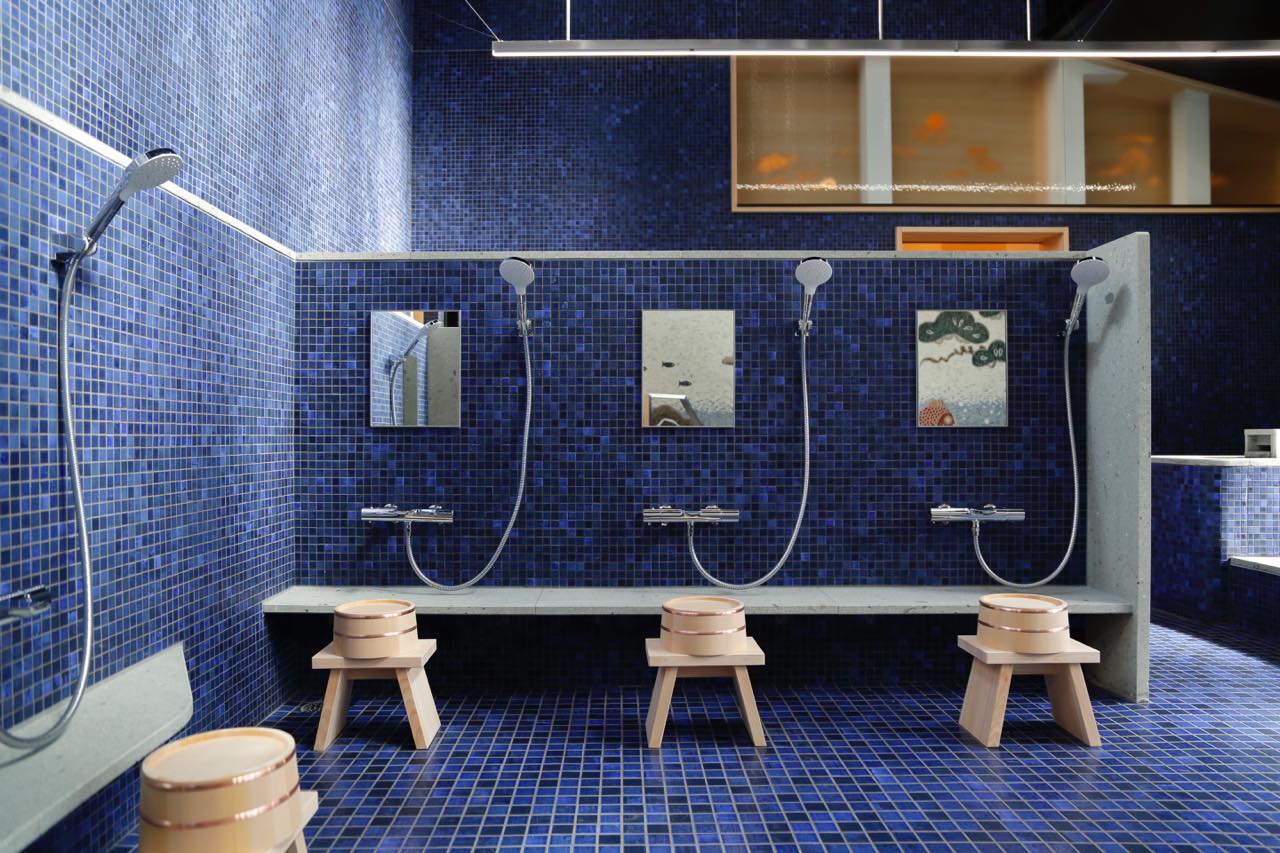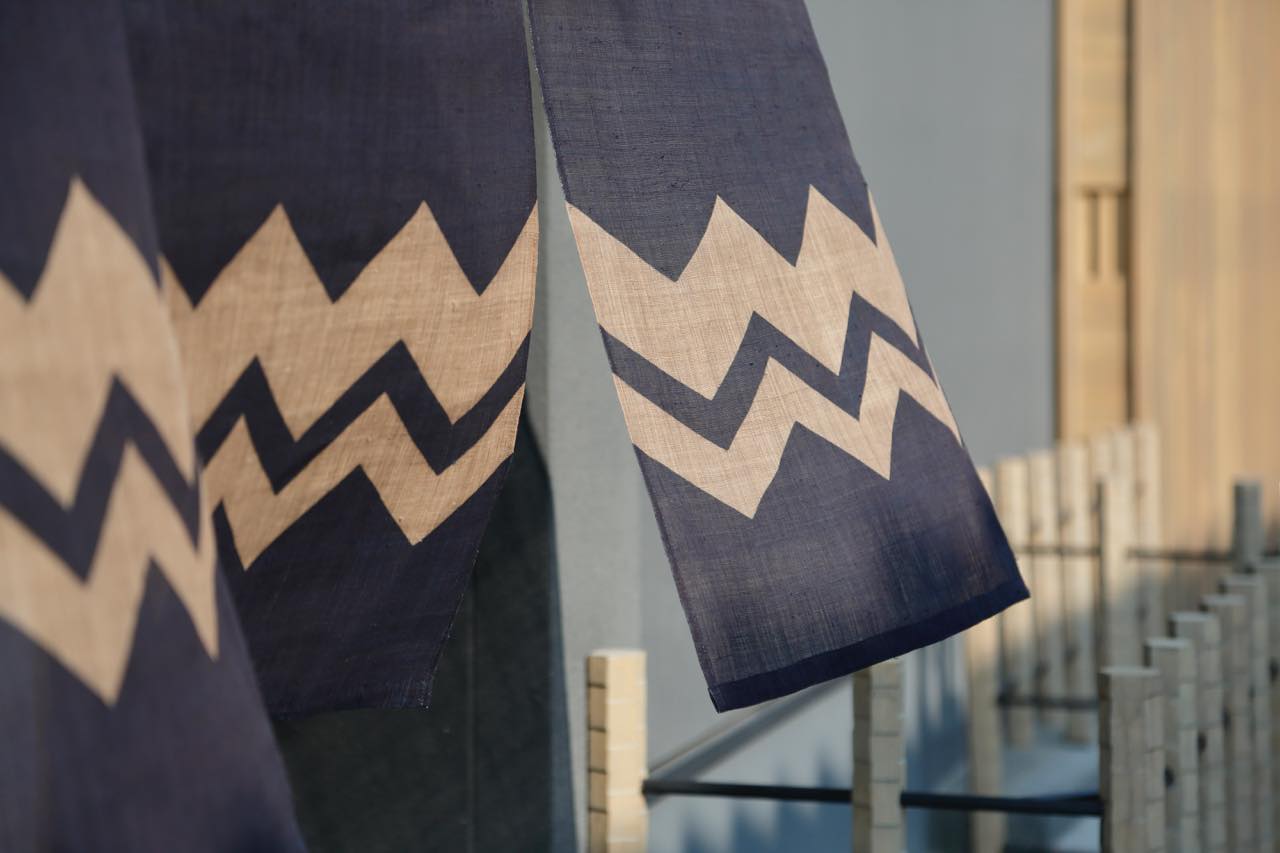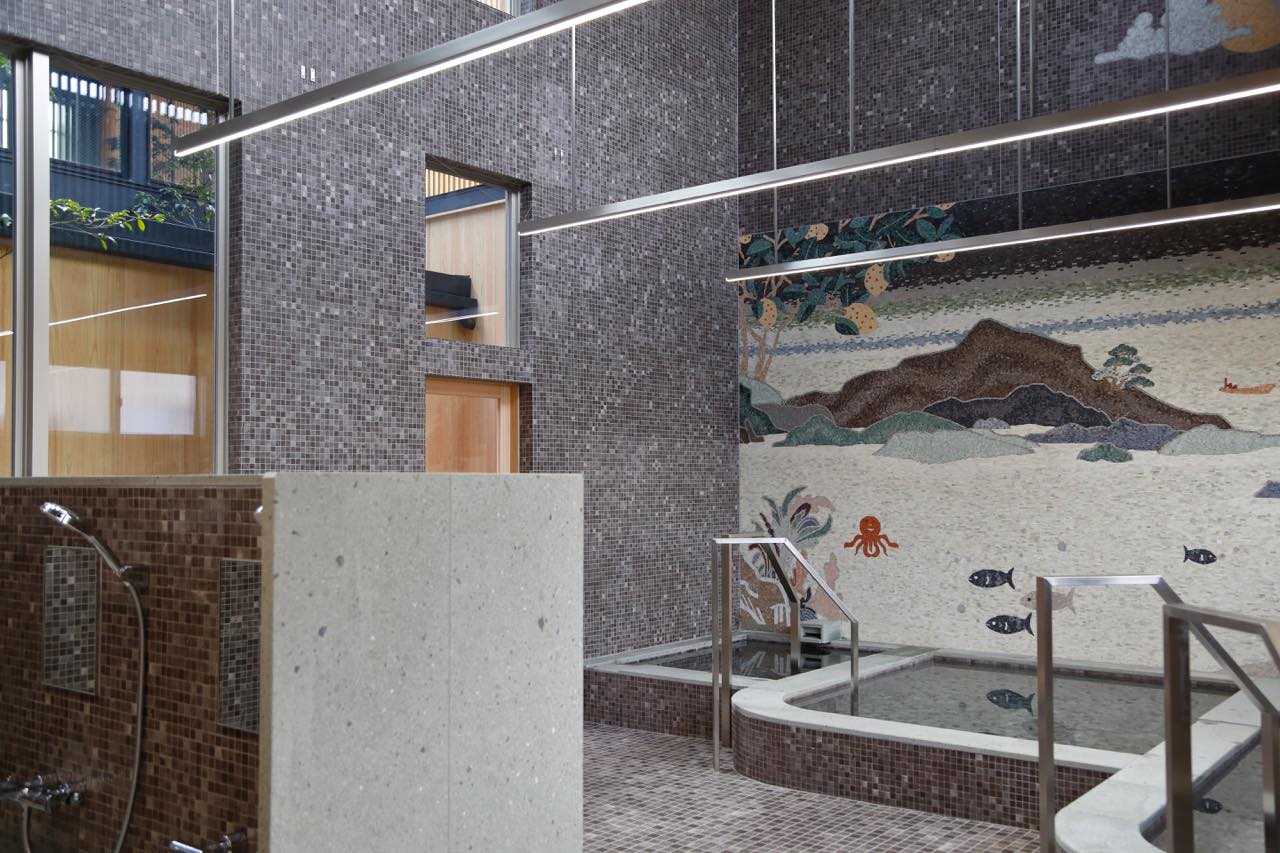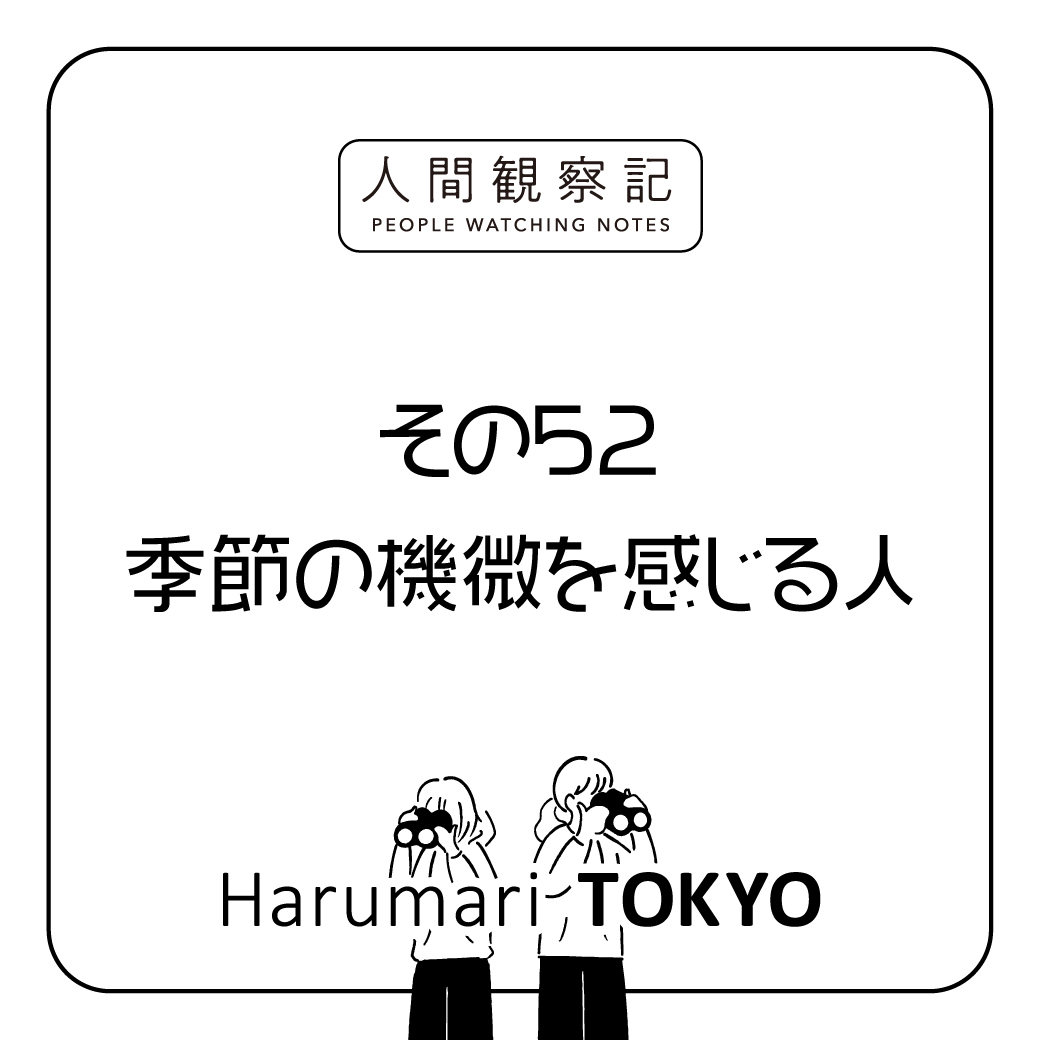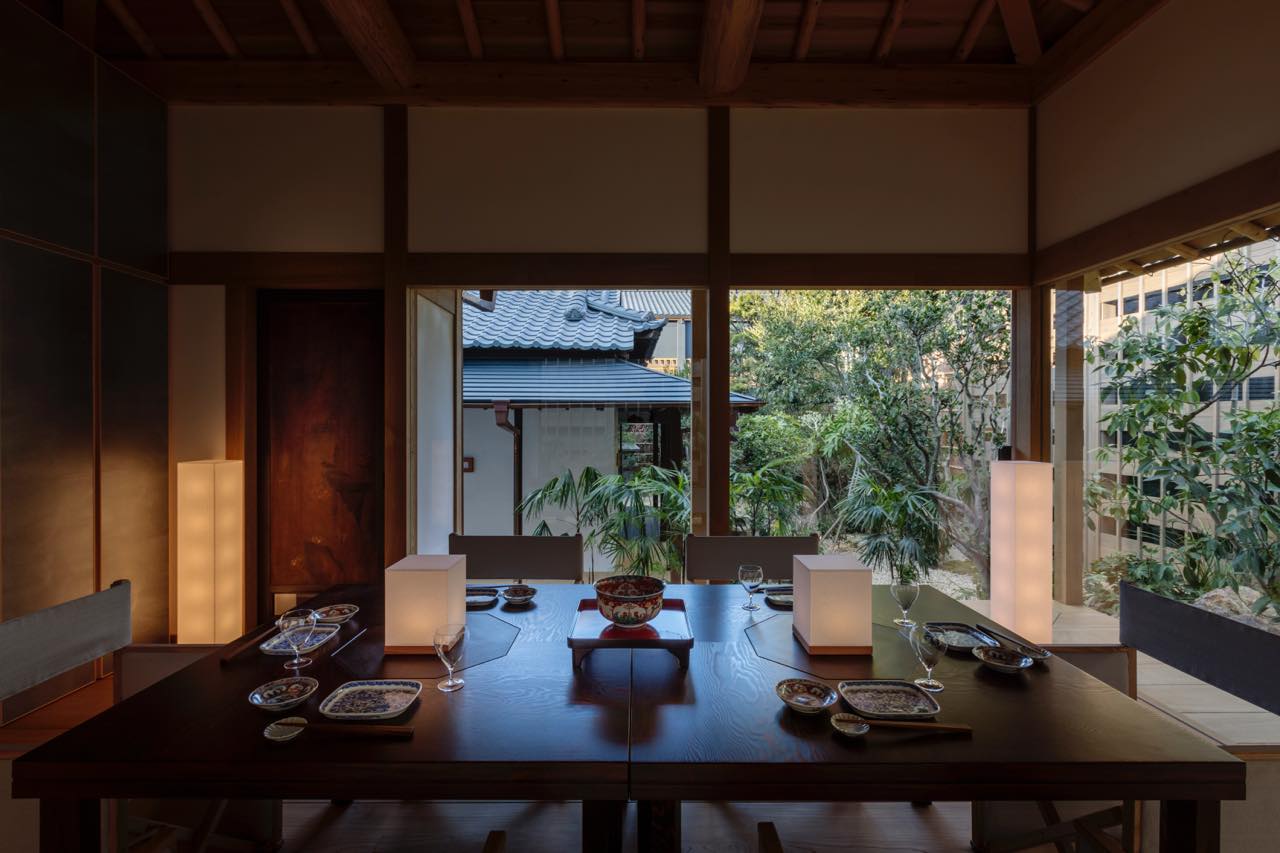
VOL.5 The Inn Crafted by a Legendary Hotelie | Azumi Setoda
The town of Setoda in Onomichi City, not just the city center, but also the third island along the Shimanami Kaido route, Ikuchi Island, is experiencing a surge in popularity. The catalyst for this is the opening of the ryokan “Azumi Setoda,” created by the founder of Aman resorts. Now, we explore the charm of this ryokan, which is attracting envy from tourism and resort professionals worldwide.
The Sentiments of Aman’s Founder Embedded in Azumi Setoda
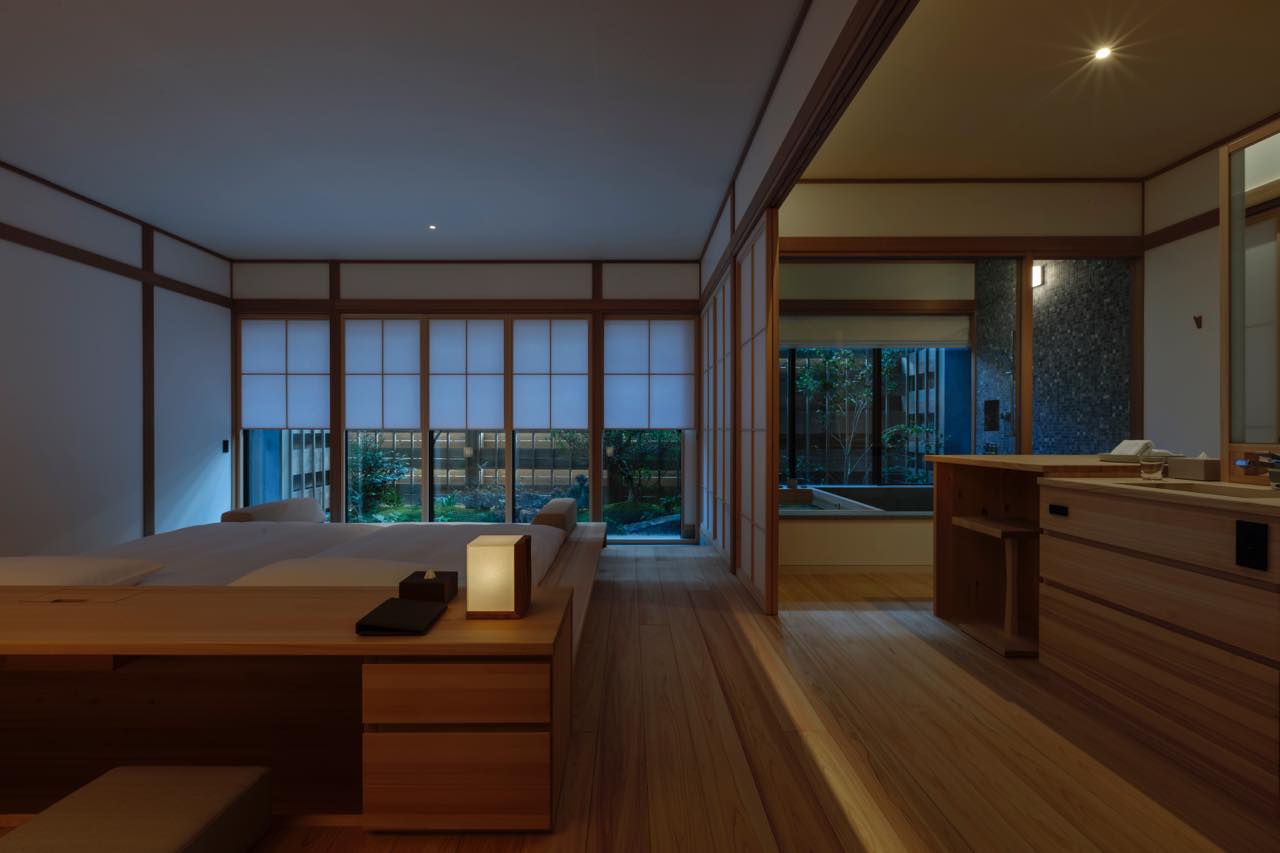
Setoda Town on Ikuchi Island in Onomichi City, located in the Seto Inland Sea, is one of the islands along the Shimanami Kaido known for its vibrant lemon orchards, gently lapping waves, and lush green mountains. It’s a beautiful natural landscape that captivates visitors. In this serene setting, Adrian Zecha, the founder of Aman Resorts, created ‘Azumi Setoda.’
Zecha first encountered the concept of a ‘ryokan’ (traditional Japanese inn) during his visit to Japan in the 1950s. He was impressed by the homely atmosphere combined with a profound sense of hospitality towards guests. Although he later achieved success worldwide with luxury hotels under the Aman brand, he always held the desire to create a ryokan in Japan close to his heart
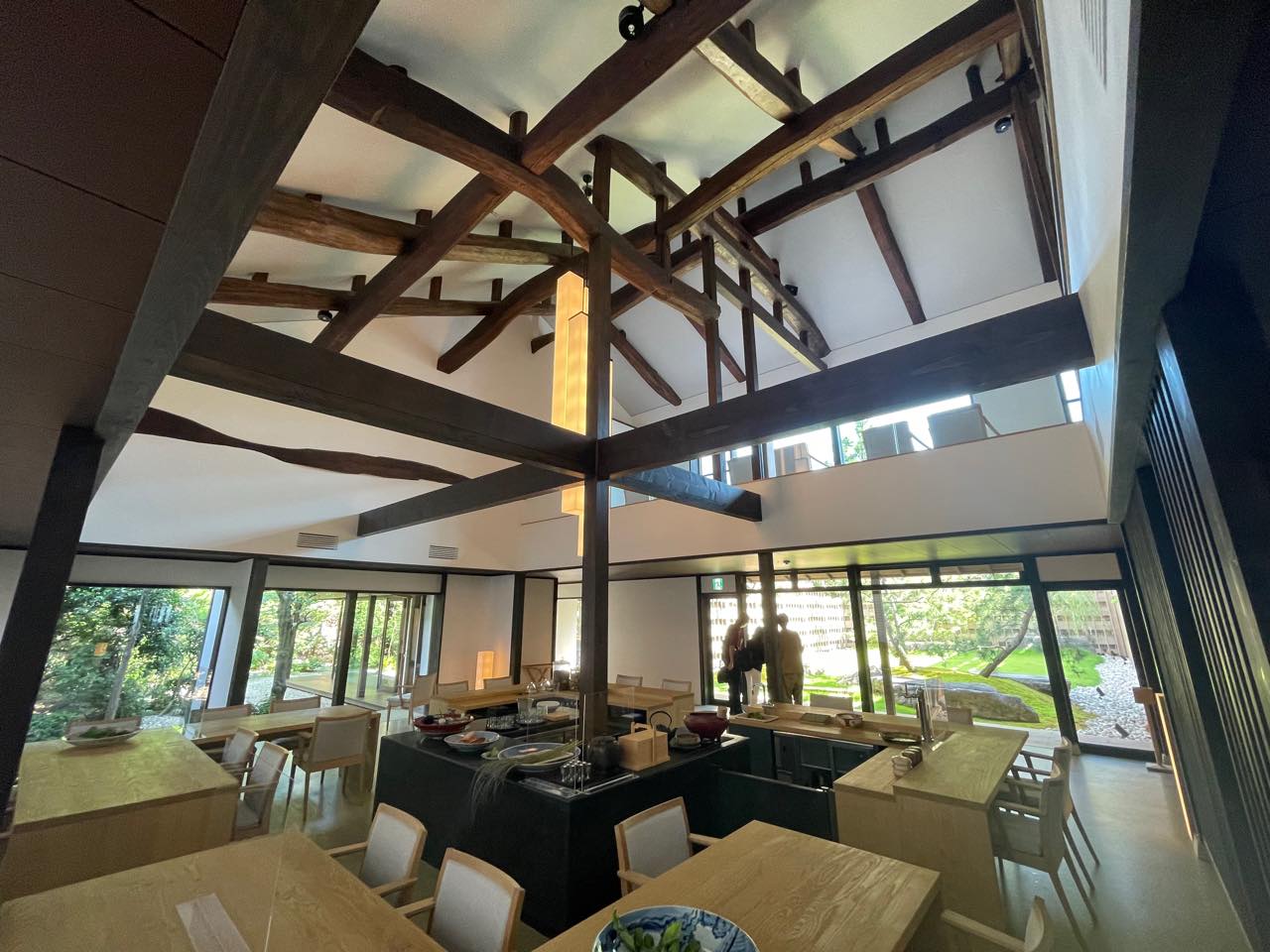
Zecha emphasizes that the most crucial element of a ryokan is “providing heartfelt hospitality that makes guests feel as if they are being welcomed into the host’s home.” True to his words, “Azumi Setoda” diverges from traditional luxury hotels by incorporating abundant Japanese hospitality.
An Array of Hospitality as if Welcomed into a Private Residence
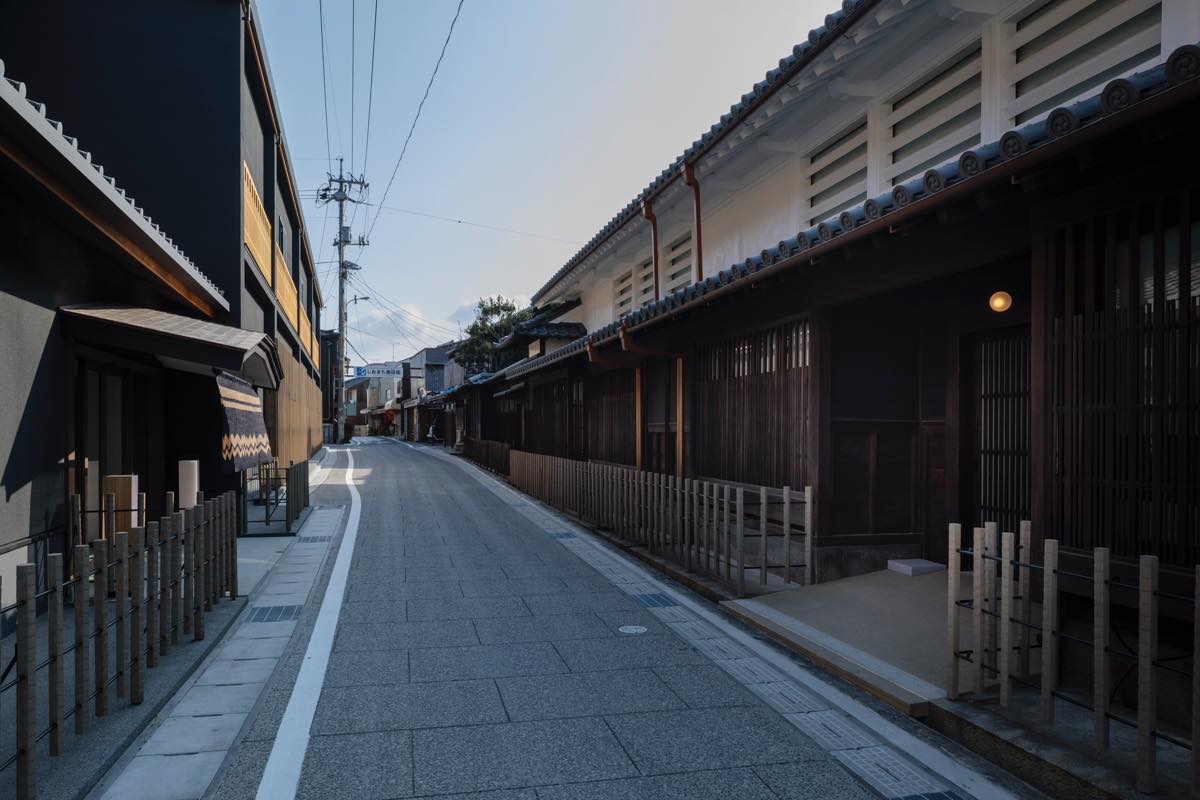
Located just a stone’s throw away from Setoda Port, the “Shiomachi Shopping Street” warmly welcomes travelers arriving on Ikuchi Island via ferry. As you stroll through the shopping street, “Azumi Setoda” comes into view. Until then, it resembles a typical local shopping street lined with individual stores. However, in the area where “Azumi Setoda” stands, traditional Japanese houses line both sides, evoking a feeling of stepping back in time to the good old days of Japan.
The establishment has been renovated from the 140-year-old mansion known as the “Former Horinai Residence.” This mansion was once used by the wealthy Horinai family, who thrived in salt production and transportation industries in Setoda, to host their esteemed guests.
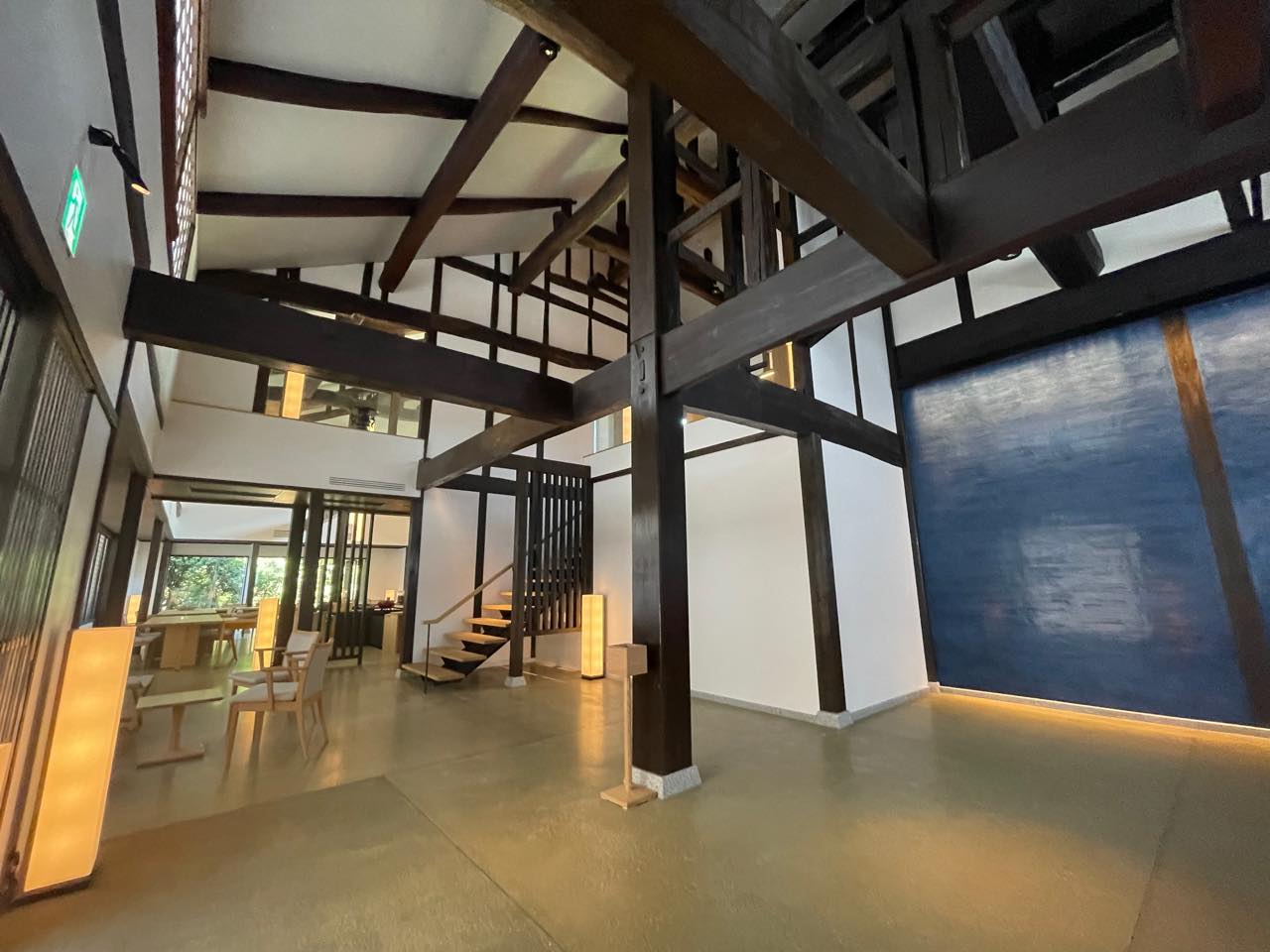
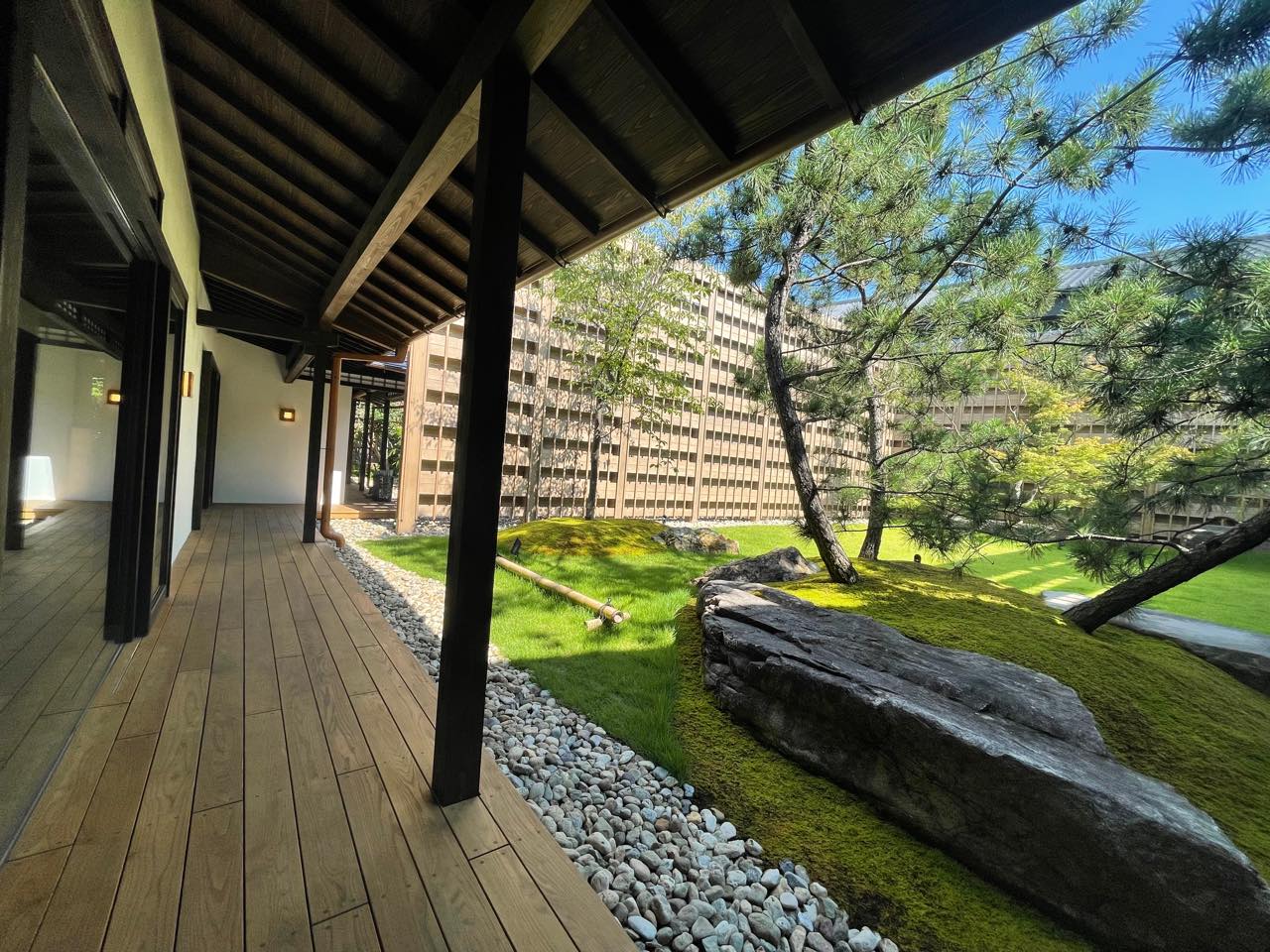
The renovation was supervised by the architect Shiro Miura, a specialist in traditional Japanese architecture. Throughout the building, natural materials such as wood, stone, and clay are utilized, and the design is meticulously crafted to allow the unique sunlight and pleasant sea breeze of Setoda to permeate the space. While offering a contemporary and sophisticated ambiance, features like shoji screens and a central courtyard preserve the original architectural style of the Former Horinai Residence, allowing guests to experience the beauty of traditional Japanese architecture. It’s not just a luxurious space; it skillfully integrates the culture and nature of the area, reflecting Zecha’s unique aesthetic sensibility.
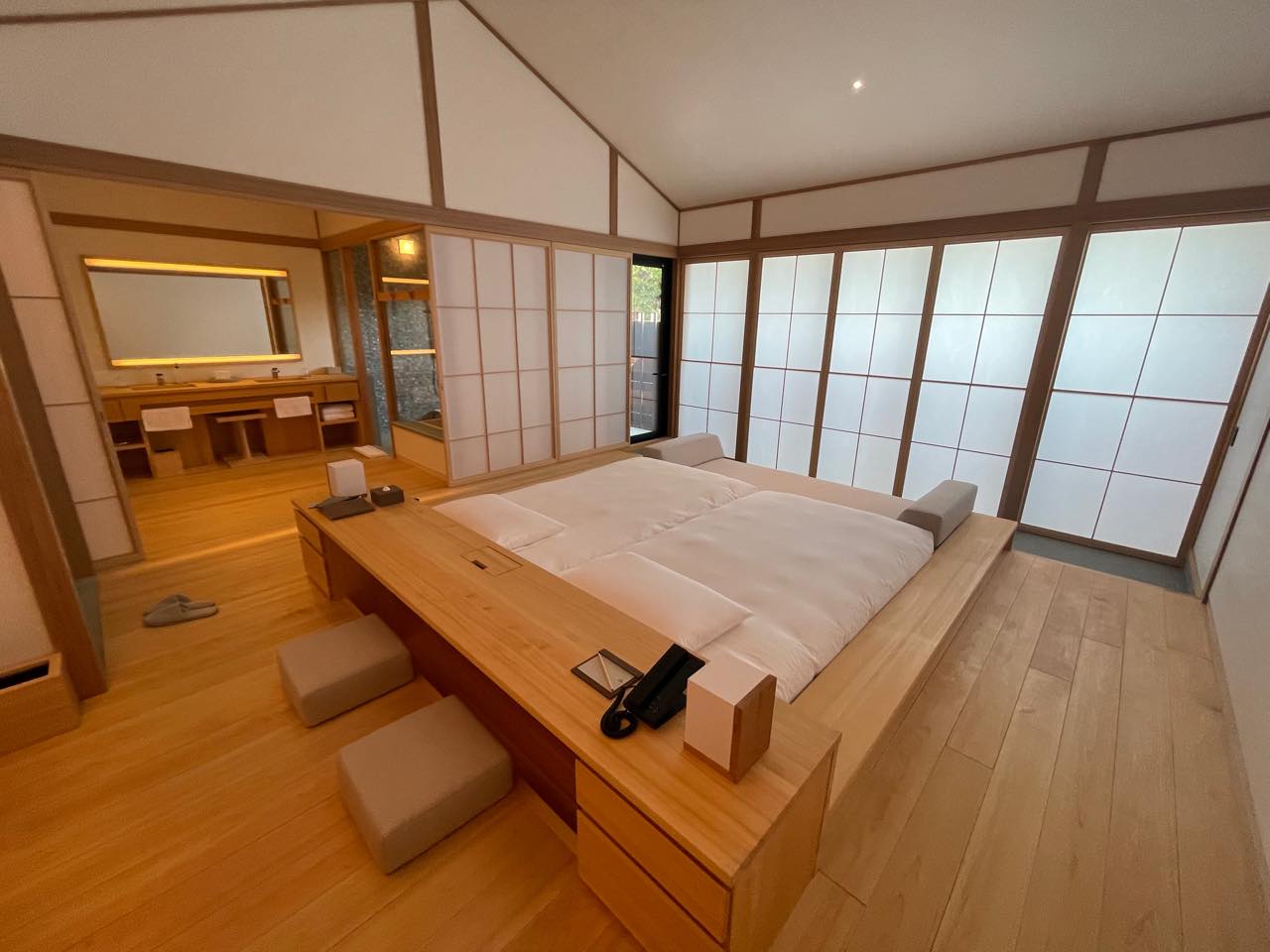
The furniture placed throughout the inn was co-produced with the renowned local furniture manufacturer, Doi Woodworking Co., Ltd., based in Hiroshima. Utilizing local natural materials such as Japanese cypress, the furniture seamlessly blends into the ambiance of the inn and complements the views of the garden. The desks in front of the beds are sunken kotatsu-style and come equipped with power outlets, allowing guests to comfortably work while enjoying their stay.
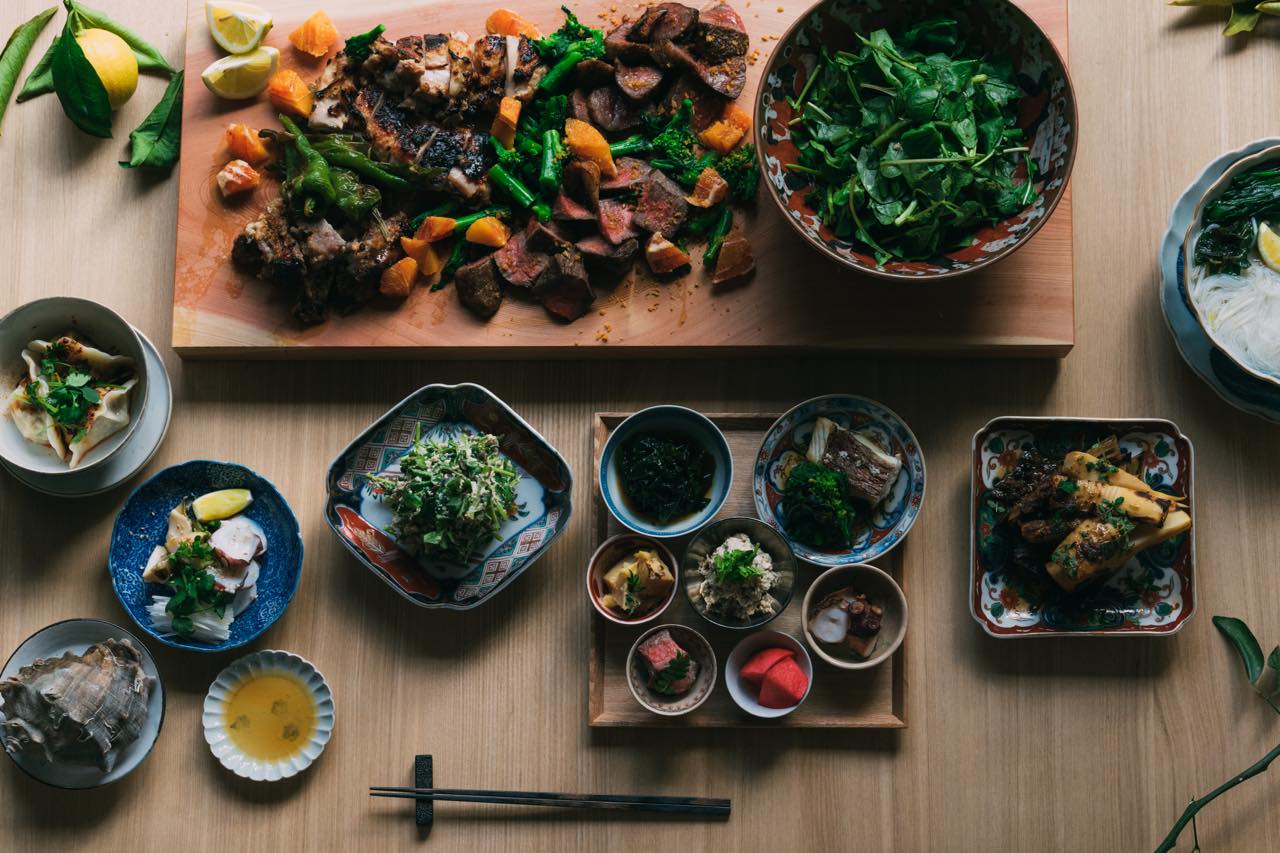
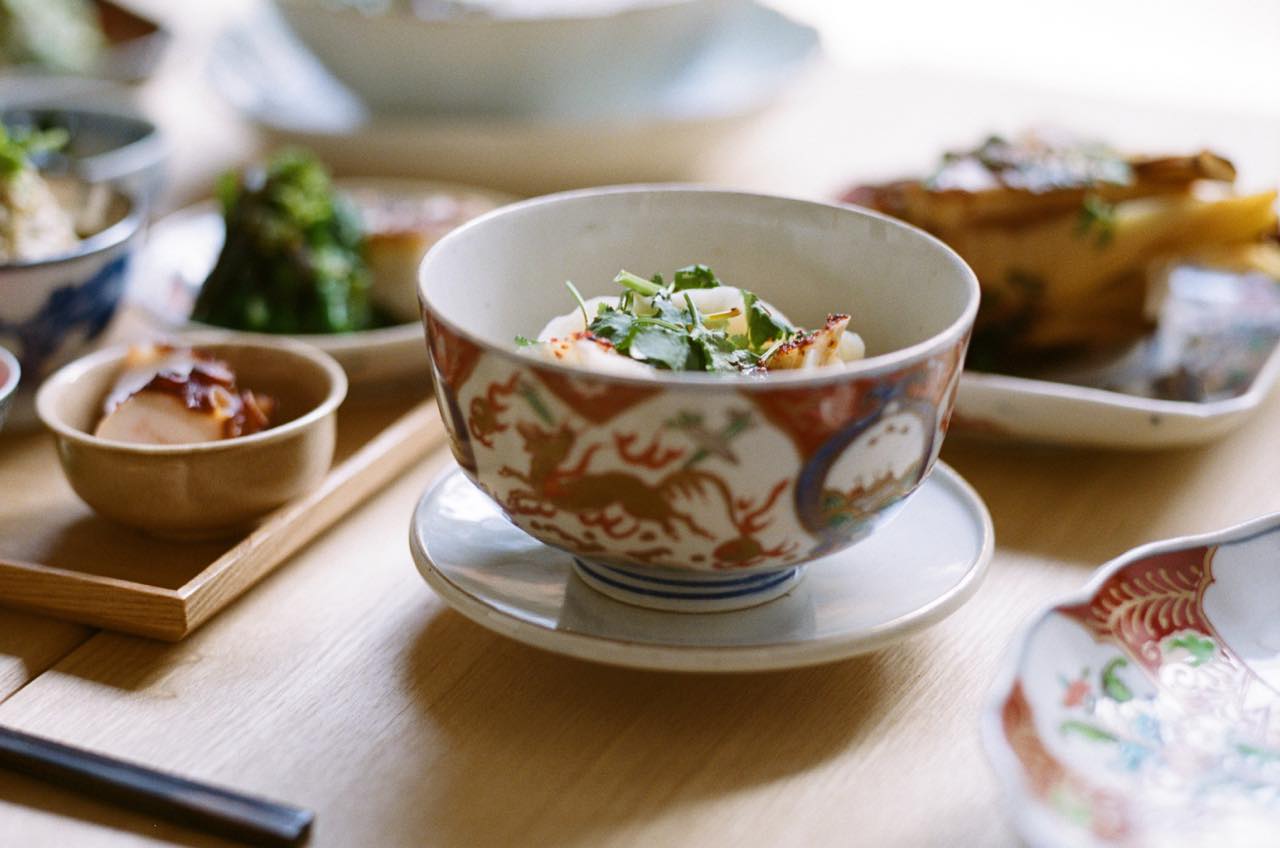
The meals feature dishes made with locally sourced seasonal ingredients such as seafood, citrus fruits, and vegetables, reflecting the cuisine served when the Former Horinai Residence hosted guests. Given Setoda’s historical significance as a key maritime trading hub, one distinctive feature is the incorporation of herbs and spices that evoke flavors from Asia and Persia. Additionally, precious tableware once stored in the Former Horinai Residence is utilized, enhancing the atmosphere of traditional home-cooked meals.

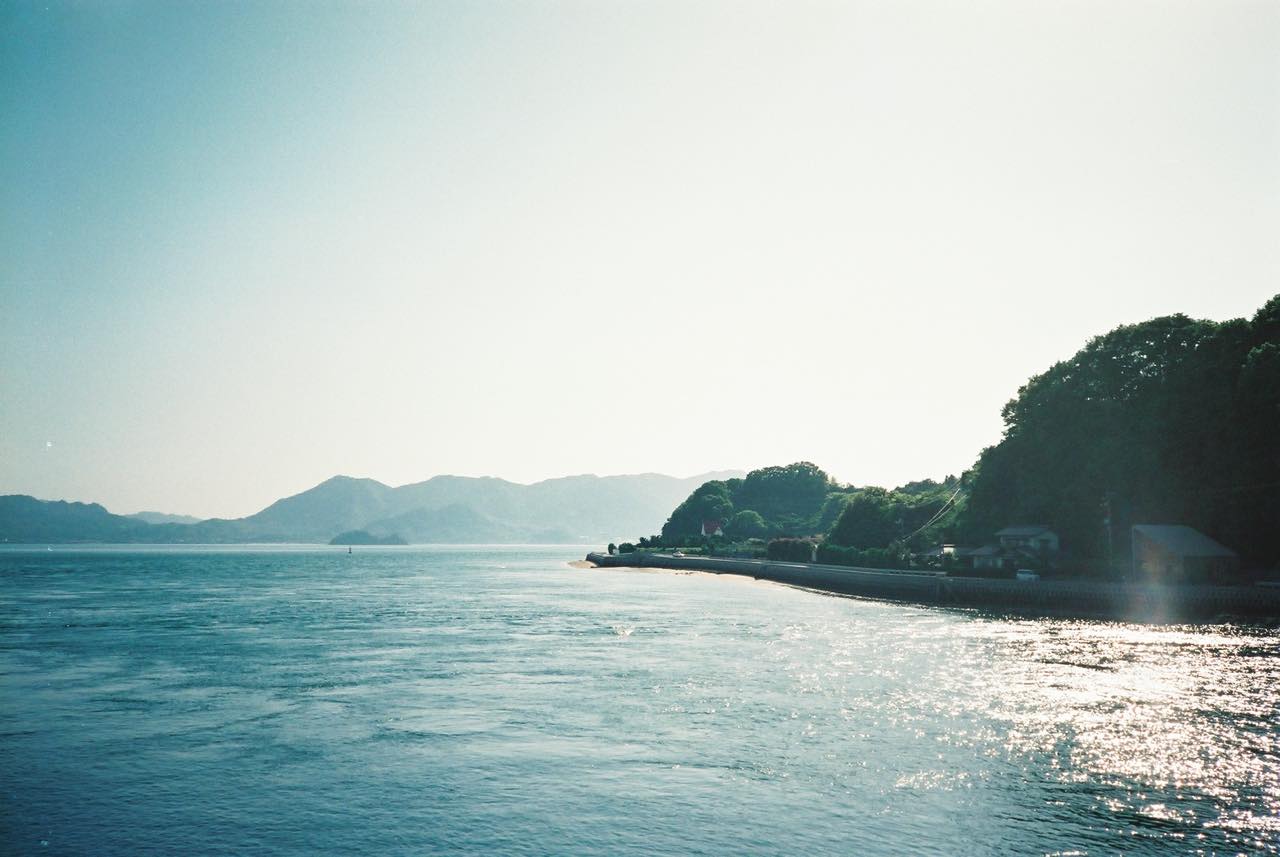
We stayed in Setoda for a few days, and though it was a short time, the feeling towards “Azumi Setoda” can be best expressed as “wanting to return” rather than “wanting to visit again.” It’s as if the perfect phrase to describe it is “coming back home.” Perhaps this feeling arises from the fact that “Azumi Setoda” is situated at the entrance of a shopping street where the local culture has flourished, and within the mansion that still retains traces of its former residents’ lives, allowing guests to immerse themselves in the local way of life.
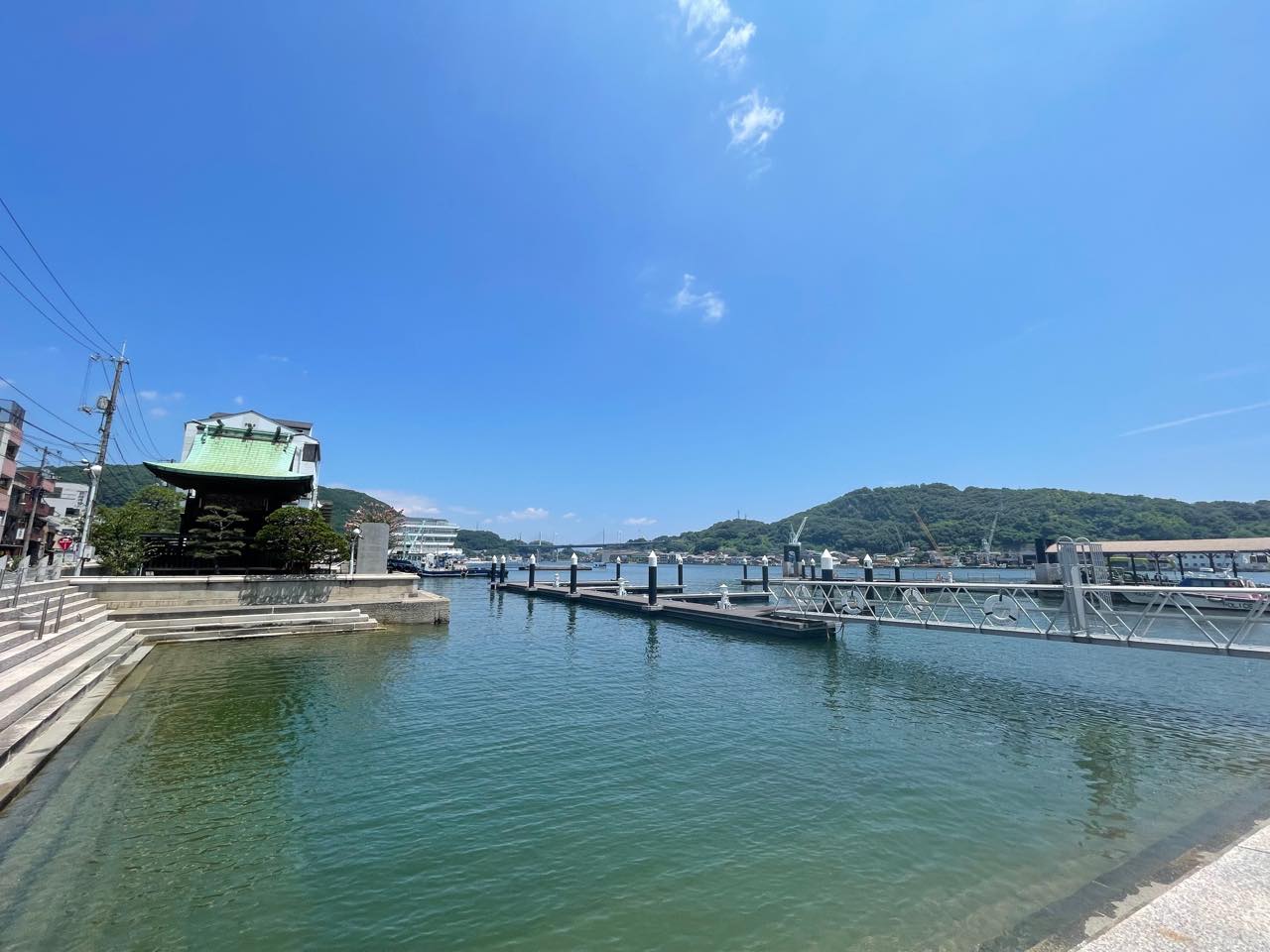
The stay at “Azumi Setoda” vividly conveyed the beauty of Japanese culture and the richness of Setoda’s nature. If this were just another typical luxury hotel, such an experience would not have been possible. In that sense, this inn seems to be the perfect destination for immersive travel experiences that go beyond superficial tourism and delve deeper into the essence of a place.
“Yubune,” a place for interaction place with the local community.

If you’re staying at “Azumi Setoda,” a must-visit spot is the nearby public bath and inn, “Yubune,” located just across the street. This facility is equipped with baths and saunas, and guests of Azumi can use it as many times as they like. Not only travelers like us but also local residents can use it, serving as a place for interaction between both groups. Especially at night, when the day-trip tourists and passing cyclists diminish, it becomes a space exclusively for “those staying in Setoda” and the islanders. It fosters a sense of solidarity among those who understand the charm of Setoda. It’s like experiencing a strange sensation of being accepted by the locals, even though you’re just a traveler, as if you’ve become part of the local community. This atmosphere cannot be found in facilities limited to guests, and the openness of the public bath within the shopping street highlights the wonderfulness of Japanese culture. It allows you to truly feel Japanese culture with your senses.
In addition to regular baths, guests can also enjoy special baths unique to Setoda that change with the seasons. During our visit, there was a lemon bath prepared, and soaking in the lukewarm water with the faint scent of citrus was not only refreshing for the body but also rejuvenating for the mind. Inside the public bath, there are tile paintings depicting islands and creatures of the Seto Inland Sea. The charming and memorable illustrations, inspired by the islands and its inhabitants, allowed us to reflect on the events of the day in Setoda.
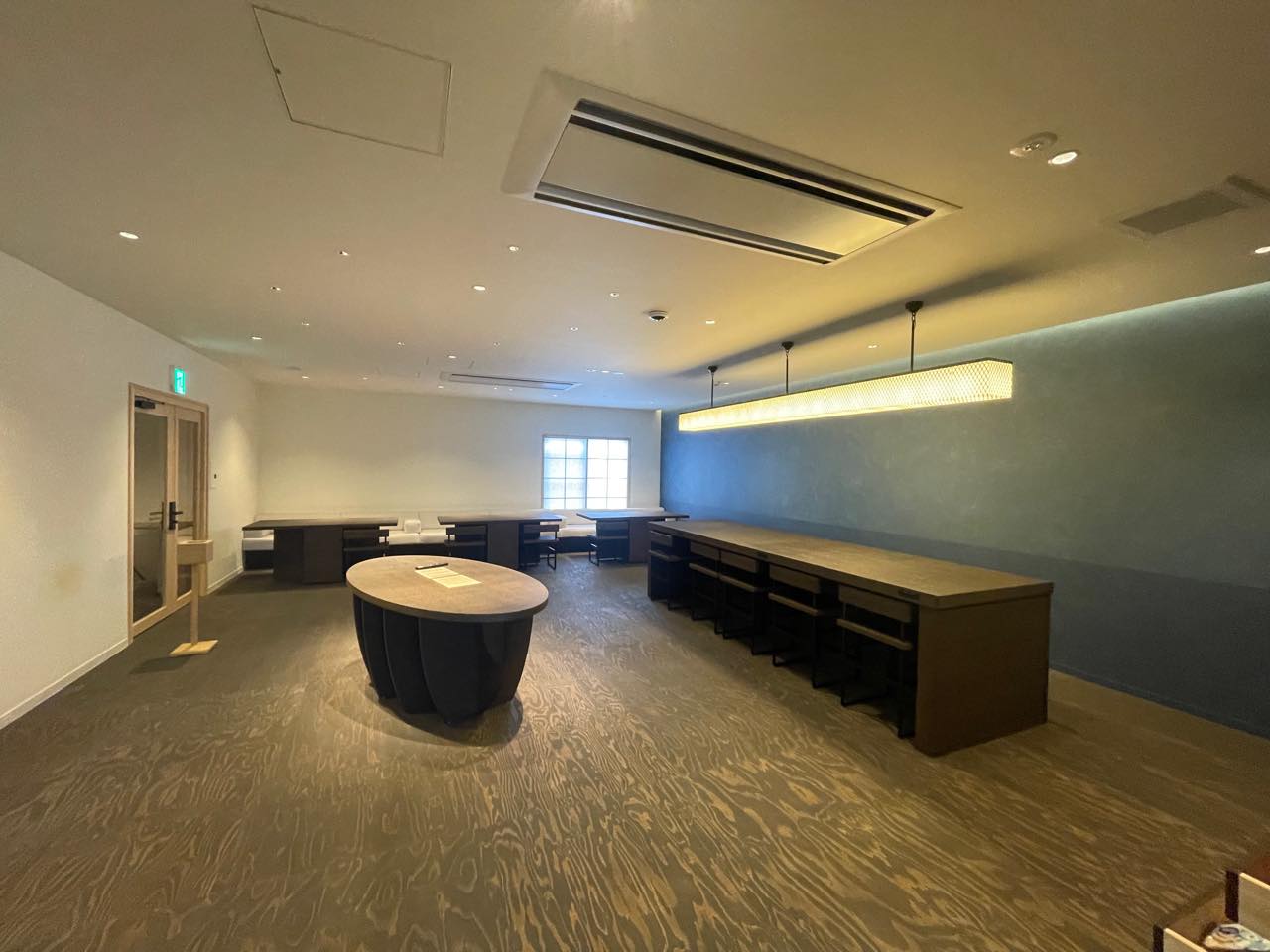
After bathing, guests can head to the exclusive “Yuagari Lounge” reserved for guests. In addition to tea and soft drinks, alcoholic beverages such as beer are also available, allowing guests to fully enjoy their post-bath relaxation time.
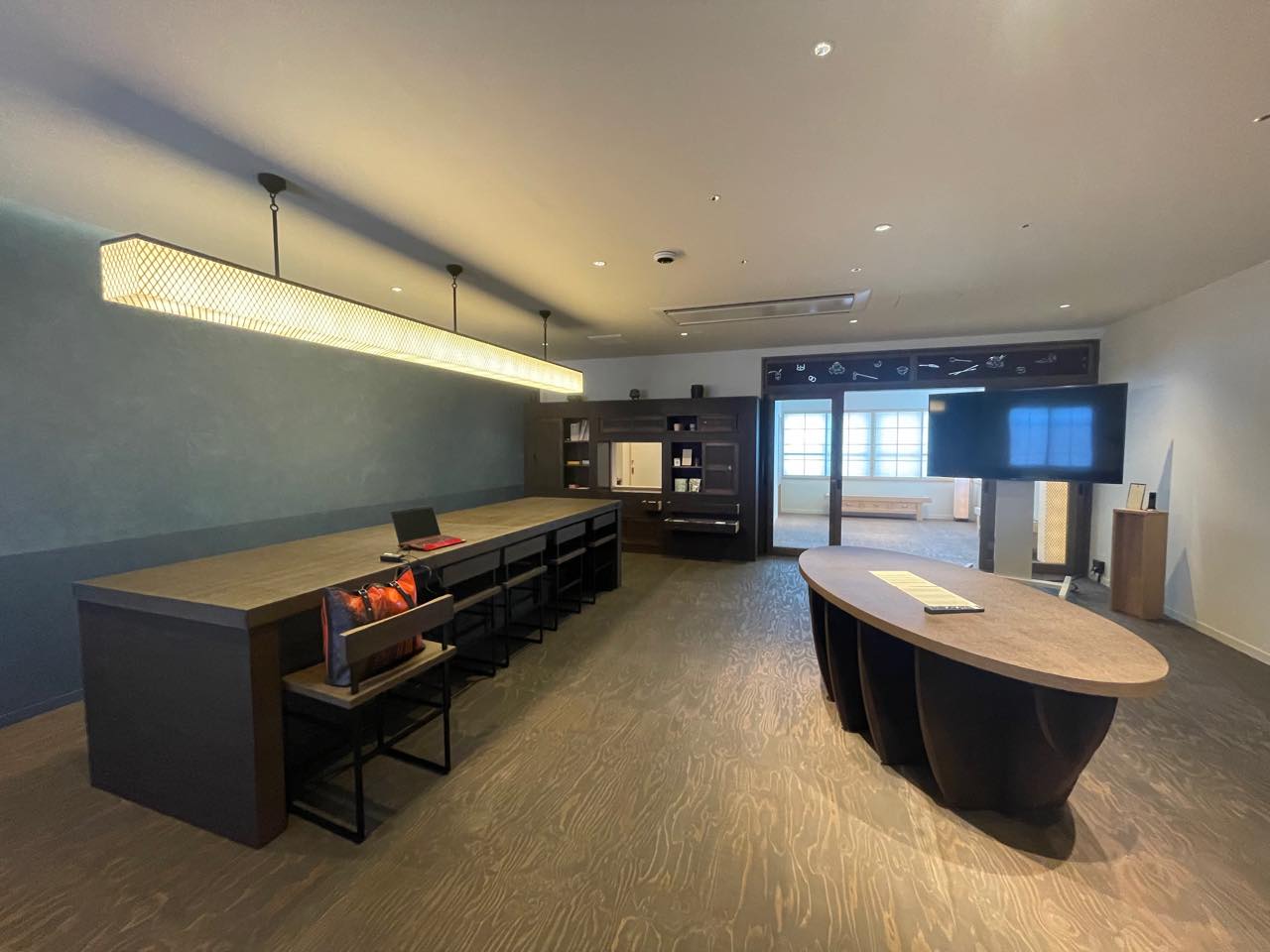
The Yuagari Lounge can also be utilized as a co-working space during the daytime. Since it’s exclusive to guests, there are fewer people, creating a serene environment perfect for work. It’s equipped with power outlets and Wi-Fi, allowing guests to immerse themselves in their tasks without any inconvenience.
Interestingly, one of our editorial staff arrived earlier than the designated check-in time. They thought the Yuagari Lounge wouldn’t be available yet, but thanks to the thoughtful gesture of the Yubune staff, they were guided to the lounge and could start working. Furthermore, they were accommodated with an earlier check-in time and received complimentary drinks as an apology for any inconvenience caused (although it was actually due to the guest’s early arrival). This attitude closely resonated with Mr. Zecca’s philosophy of “hospitality,” leaving our hearts filled with gratitude.
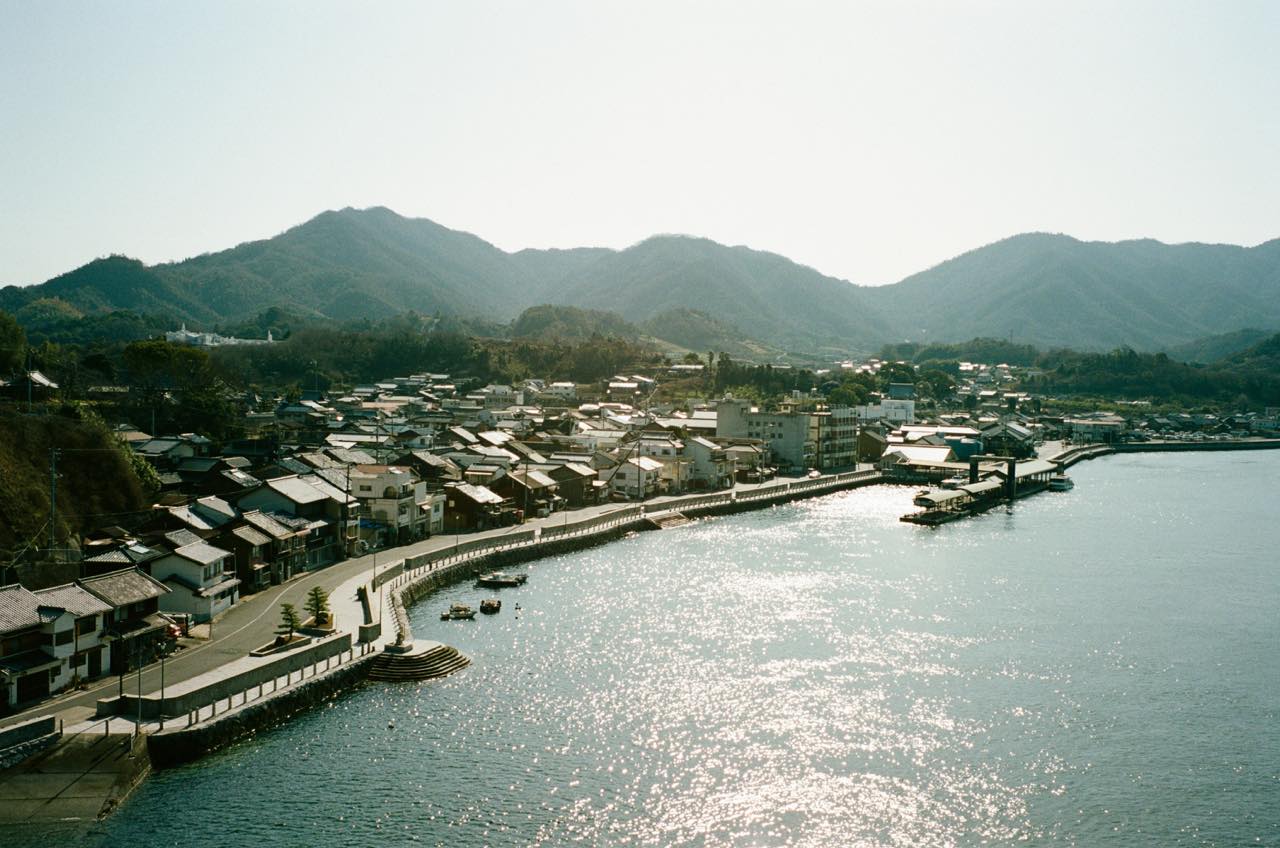
The name “Azumi” originates from the ancient seafaring people known as the “Azumi tribe,” who settled in Japan after crossing the seas. It symbolizes the formation of Japan, which was shaped by various ethnic groups bringing their cultures across the ocean and intertwining them intricately. “Azumi Setoda” itself aims to be intricately connected with local culture and interactive with the community.
While it requires transferring via Shinkansen or ferry from Tokyo, the hospitality, local culture, and interactions with people can only be experienced in this place, in this ryokan. The stay was not only about healing the mind and body but also about gaining inspiration that cannot be found in everyday urban life. It left a feeling of wanting to return someday for that unique experience.
Credits: Azumi Setoda / yubune
Location: 269 Setoda, Setoda-cho, Onomichi City, Hiroshima Prefecture
Official Website: https://azumi.co
Acknowledgments: Contribution and Interviews: Azumi Setoda / yubune
Main Image: Tomohiro Sakashita
Reporting and Writing: Mayumi Miyata (Harumari TOKYO)

